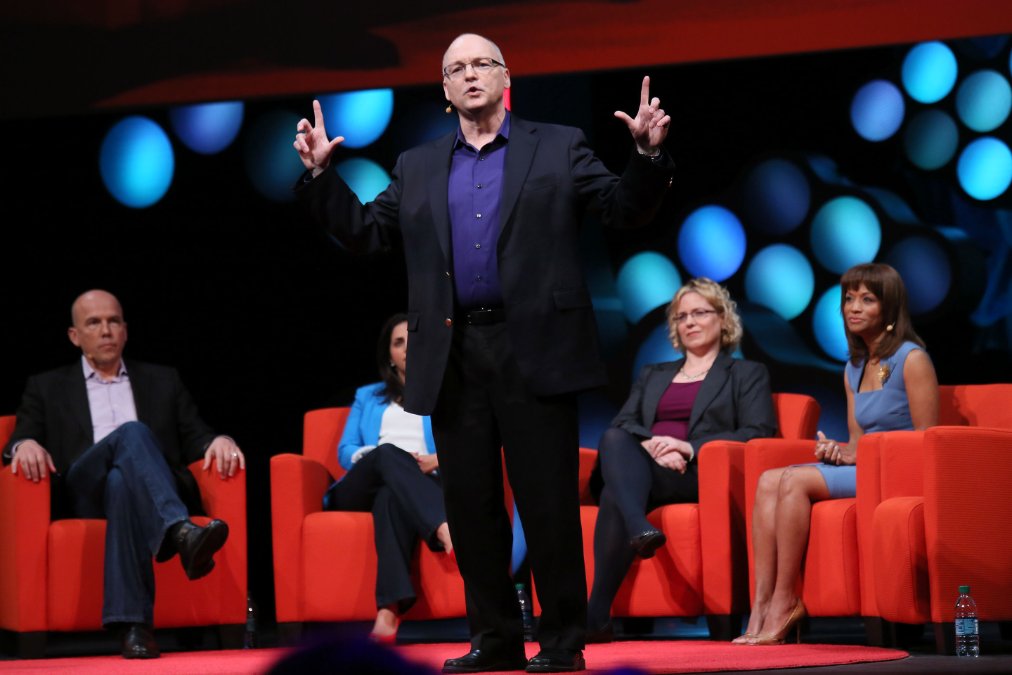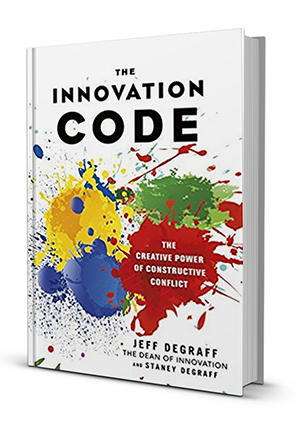Newcomers to an Alcoholics Anonymous meeting are often surprised that what you’ll find there is the opposite of reassurance. Normally, if someone has a crisis, a friend will say relax, it’s going to be okay, don’t be too hard on yourself. Stay positive. Breathe. But at an AA meeting you have to stand up in front of everyone and say: alcohol wrecked my life. Here’s the painful story, and what am I today? I’m still an alcoholic.
This approach is a speed ramp to remembering the worst times, your most disappointing and shameful defeats. Why? When life is all right, it’s comfortable to stay where you are, and painful to commit to something new. Most of the time, we all strive for consistency and comfort: we want tomorrow to be reliably like today. That’s why AA doesn’t go easy on the novices: they understand that until newcomers own up to the reality of their situation, there is little hope of them kicking the habit. Yet when life feels miserable, risk and reward reverse: now it hurts to stay where you are, but trying something new actually feels better. As Bob Dylan put it, “When you ain’t got nothin’, you got nothin’ to lose.”
We seldom change on our own. But most people will try something new – like not drinking even though they badly want a drink — if they feel bad enough. It’s as true for companies as it is for individuals: Why is Apple is doing well now? Because they nearly went bankrupt in 1997. They had to try a lot of risky, potentially embarrassing innovations because the alternative was to give up and go home. Out of those risks came the iPod, iTunes, the iPhone and the iPad. We see this pattern over and over in business: the original vision of a hybrid engine like the one in the Prius was developed in the 1970s during the oil crisis. When gas prices game down, the idea got lost, but during the recession of 2008-2009, when General Motors had to take a government bailout, they took the risk on finally producing the Volt, their hybrid. It’s as Rahm Emanuel, the mastermind behind President Obama’s unlikely election, liked to say: “A crisis is too valuable to waste.”
We experience these same dynamics as individuals. Divorce, bankruptcy and loss of health drive us into changes we previously believed unimaginable. We change, and hopefully grow, when our life sucks. When it comes to creativizing, if you want to move from idea to action, find the part of your life that feels worst and focus on it. Where is the pain so high that trying something new would be an improvement? Remind yourself of what’s wrong, and take an action there.
GET ON A ROLL
Is there no alternative to suffering in order to change and grow? Actually, there is. We are also freed to change when life exceeds our expectations. Graduation, a new job, true love, or the birth of a child are some of the events that make us feel we’re “on a roll.” Economists call this “risk capital.” When we’re doing well, we know that even if something goes wrong, we can absorb the losses, so we take more risks because we know we won’t be wrecked by a failure. I suspect this is one reason New Year’s resolutions are so popular: almost everyone feels at least a temporary feeling of optimism on New Year’s Eve. That optimism makes contemplating change less painful.
At its best, getting on a roll is a feeling like invincibility – anyone who’s been in love knows this feeling. It’s also one reason the rich get richer – they can afford to take chances. But that doesn’t mean only the rich and the newly in love can benefit. You can to.
Discover the power of constructive conflict and how it can help foster innovation. By reading The Innovation Code, you will learn how to harness tension and transform it into positive energy to successfully implement your innovation projects.

Jeff DeGraff is the Dean of Innovation – an author, speaker, and advisor to Fortune 500 companies and mission-driven organizations worldwide. He’s the CEO and Founder of Innovatrium, Founder of Intellectual Edge Alliance, and Clinical Professor of Management and Organizations at the Ross School of Business at the University of Michigan. Jeff co-created the Competing Values Framework and developed the Innovation Code and Innovation Genome methodologies which provide organizations with practical tools to reconcile competing priorities and drive breakthrough performance. His mission is the democratization of innovation: making systematic innovation accessible to everyone, everywhere, every day.

